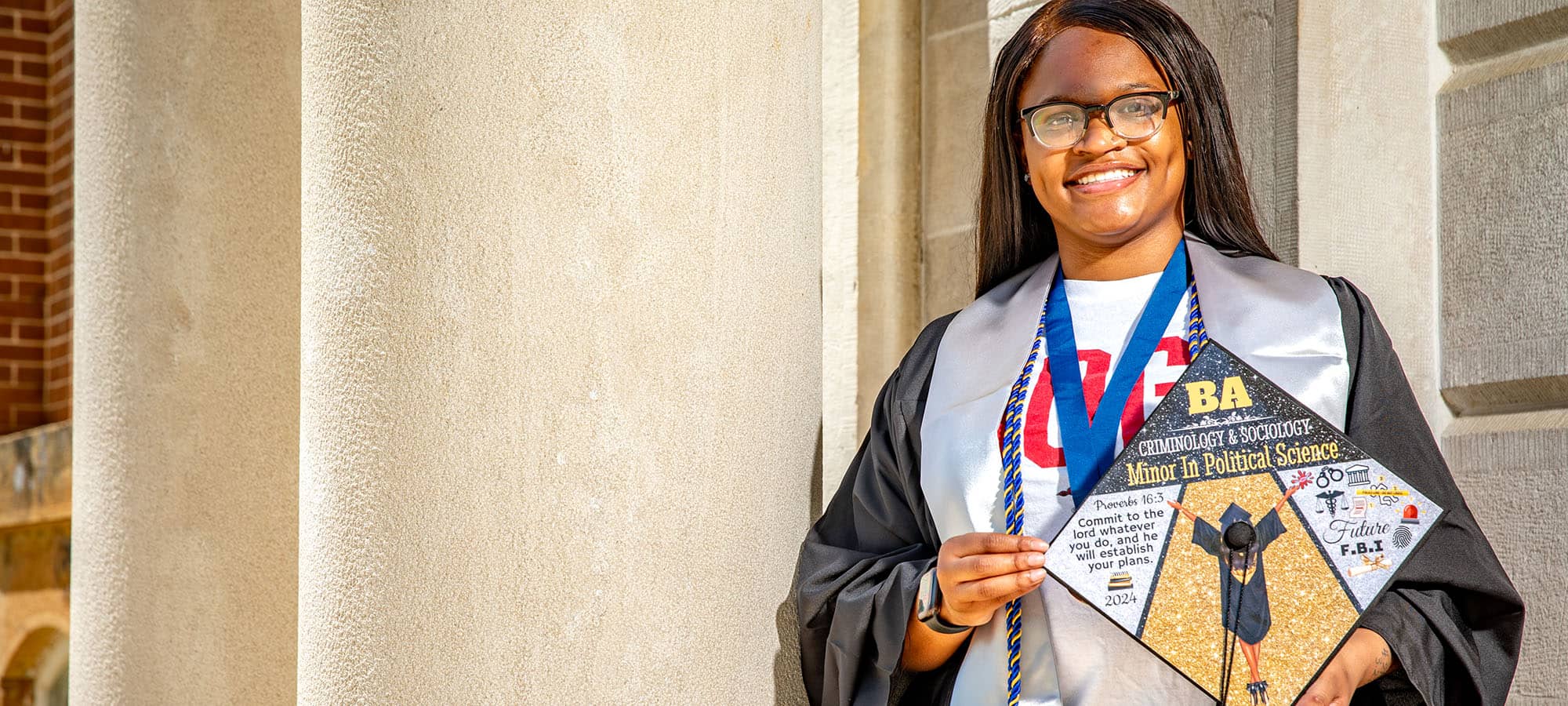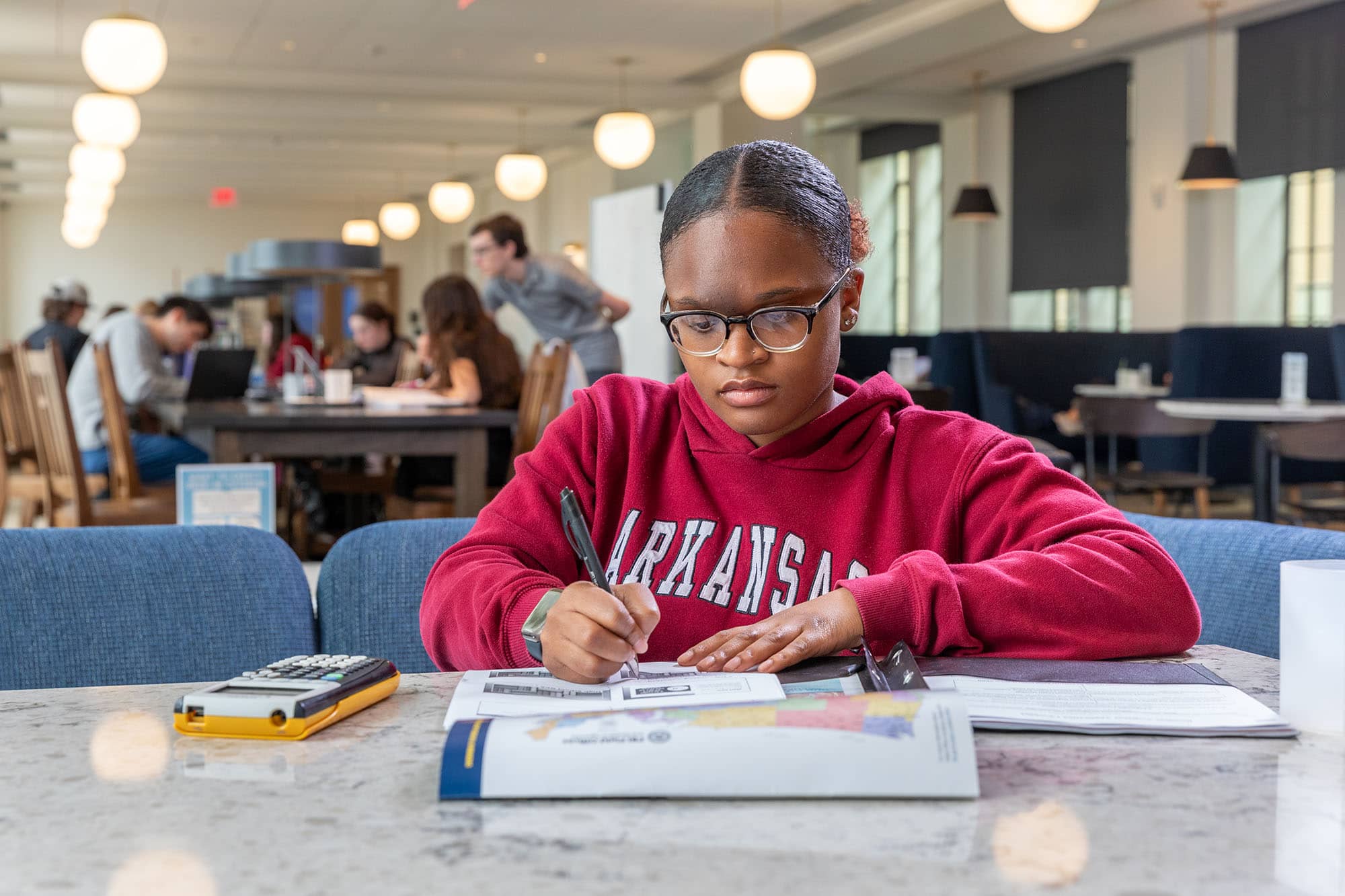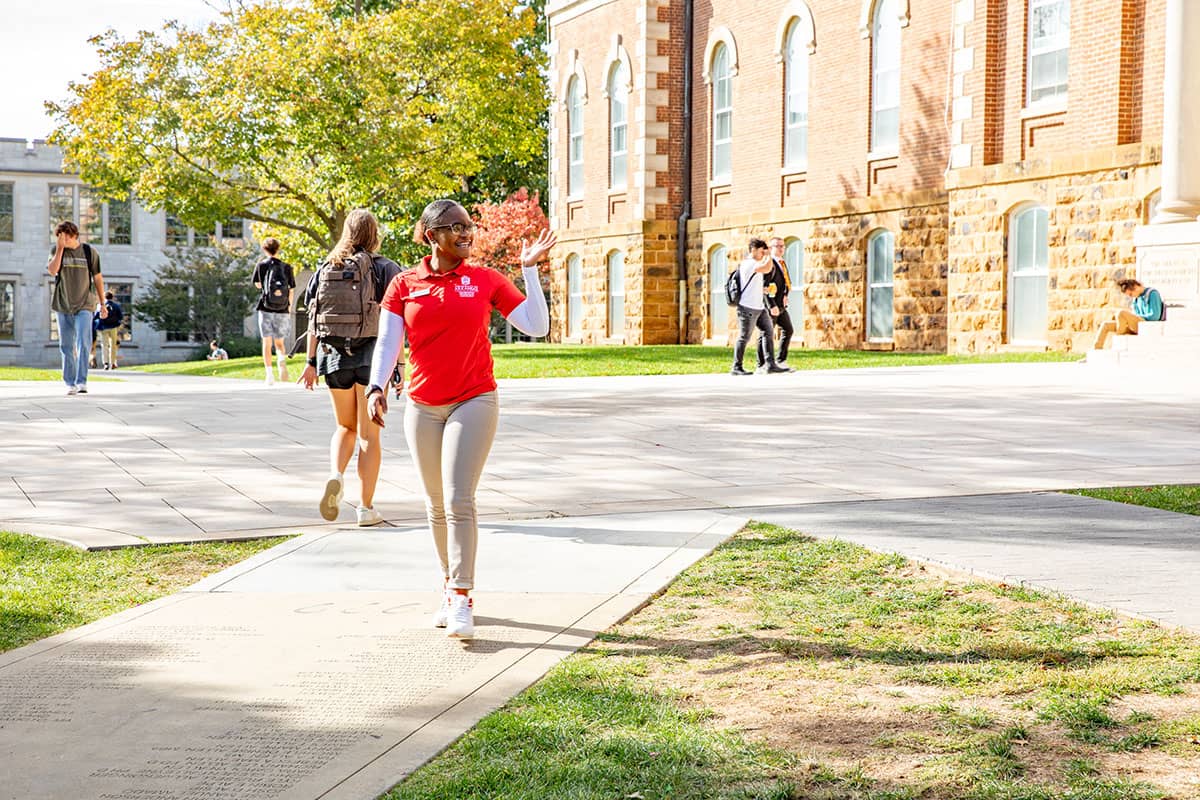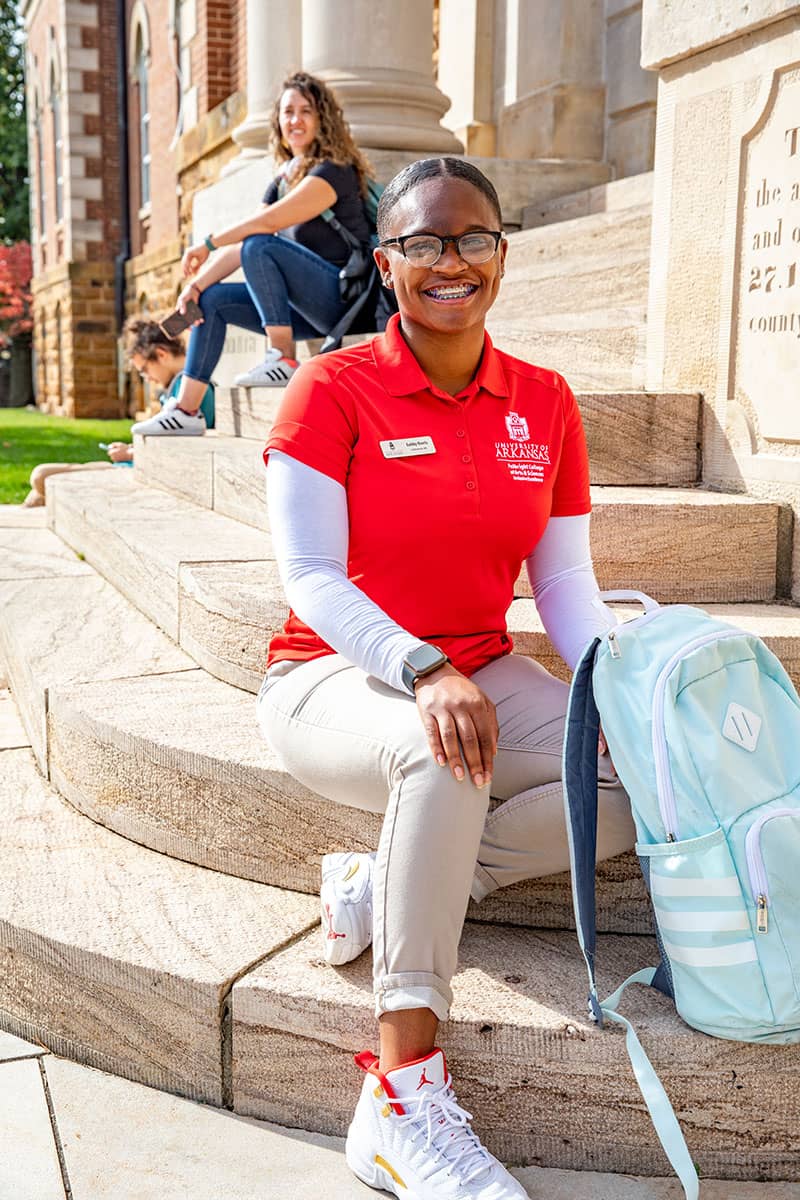
My Path to Senior Walk
Gabrielle Norris
Gabrielle Norris is a first-generation college student, and she wants to share her story so others will benefit from what she’s learned. “I want people to find their own stories,” she says. “There are people here willing to help you and want you to succeed, but you do have to step outside of your comfort zone. I feel like it helps others when I share my own experiences.”
Norris felt like she needed “different scenery and a different environment” before she transferred to the University of Arkansas, which fit the bill for both.

She earned two associate degrees from Pulaski Tech before she came to the U of A in spring 2023, where she enrolled in the Fulbright College of Arts and Sciences to major in criminology and sociology and minor in political science.
She funded her education in Fayetteville thanks to the Arkansas Transfer Achievement Scholarship, an opportunity for graduates from UA System community colleges to transfer to the U of A at the same tuition rate as their two-year institution. According to Norris, “That program helped ease my financial burden. It’s the best deal ever. You just can’t beat it.”
The scholarship program creates significant opportunities for students in every corner of the state, and it subsequently contributes to the knowledge base and economic wellbeing of communities throughout Arkansas. It’s also a part of a larger focus on supporting Arkansas students. Since 2019, the university has invested an additional $7 million in scholarships dedicated to Arkansans, and these new funds have created additional opportunities for both new and current students. In 2022, 98% of Arkansas freshmen who applied for scholarships received an award.
After stepping foot on the Hill, many transfer students feel like they are starting over. And while that brings excitement and a host of new opportunities, it can also feel daunting. Despite their seniority, they can feel like freshmen again – navigating new spaces, getting acclimated to a new culture and making new friends.


Norris says she faced numerous adjustments, including bigger class sizes. But she also found her sense of belonging through her involvement in TRIO and ASG and working as a Fulbright Ambassador and a peer mentor in the 360 Program.
Norris, too, says The CORD – particularly the writing and tutoring centers – were valuable resources as she acclimated to the demands of her major. And the Multicultural Center provided a sense of belonging and a welcoming place on campus to meet others.
Now, as a senior preparing to graduate, Norris plans to pursue a master’s degree at John Jay College of Criminal Justice in New York. Her career aspiration is to work with the FBI or engage in detective work.